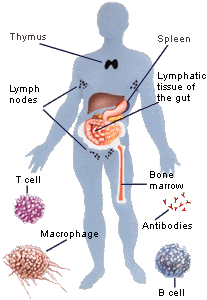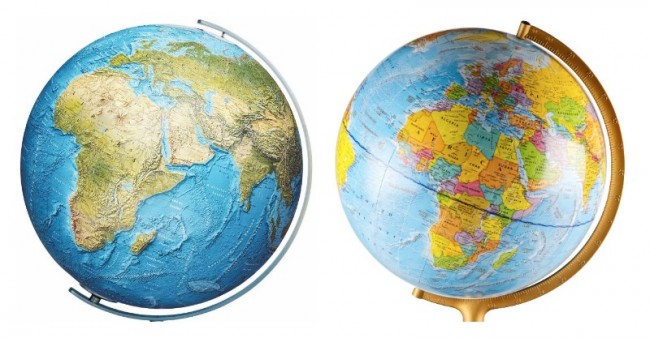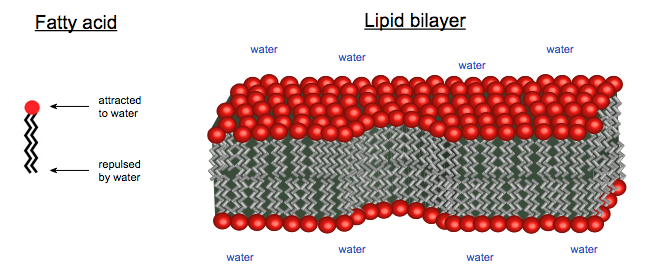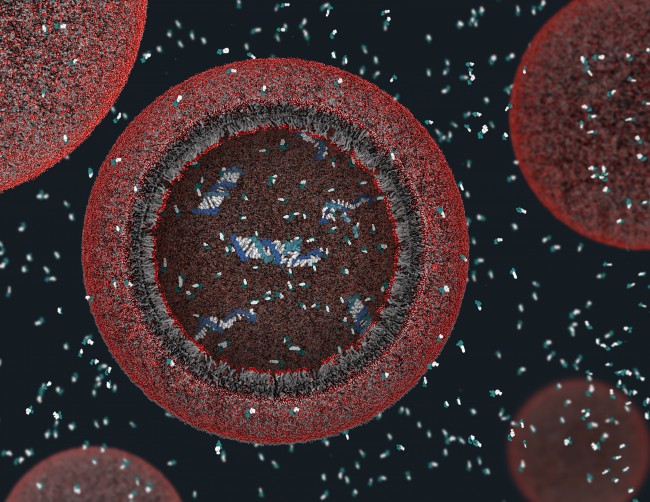I. National sovereignty
Conservatives often clamor for strong national borders. For most of my life I had no idea why.
I mean, I understood their specific (partisan) agendas — wanting to restrict immigration or keep drugs out of the country, for example. But I was completely missing the intuition behind the desire for strong borders. I just didn't feel it in my bones.
Now I get it.
The key insight, for me, was realizing that border security is so much more than a political talking point. It's a principle of fundamental importance to life itself — something closer to thermodynamics, ecology, or game theory than mere politics.
Border security (I now realize) is a necessary precondition for agency in a hostile ecosystem.
Whether you're a mighty empire or a humble bacterium (or anything in between), if you want agency — i.e., control over your own destiny — then you need a say in what crosses your borders. Specifically, you need to:
- Acquire: Bring good things in.
- Retain: Keep good things in.
- Remove: Take bad things out.
- Exclude: Keep bad things out.
Consider how the Department of Homeland Security describes its border-security imperative:
Protecting our borders from the illegal movement of weapons, drugs, contraband, and people, while promoting lawful entry and exit, is essential to homeland security, economic prosperity, and national sovereignty.
It might be tempting to dismiss this as bureaucratic puffery, but consider the analogy between the DHS and the Human Immune System. If the HIS issued a similar statement, we'd probably just nod along in agreement:
Protecting the body from parasites, toxins, and other pathogens, without compromising respiration or digestion, is essential to the safety, health, and overall success of the human organism.
When conservatives see lax border policing, they interpret it as decay, a weakening of the national immune system — a sign that the nation has lost either the wherewithal or the political will to execute against its strategic self-interest.
It might also be tempting to dismiss this analogy — between national security and the human immune system — as just that: an analogy. A device of literary or rhetorical value, perhaps, but not something capable of conceptual heavy-lifting.
But today I will argue that strong borders are necessary for strong agency at every scale and in every type of system, because they're two sides of the same coin.
Of course a nation can and should debate exactly which border policies are in its best interests. But insofar as conservatives perceive immigrants or drugs to be a threat, the porousness of the national border will be — and should be — a political sore spot.
II. Earth from space
Alan Watts, one of my favorite thinkers, has an interesting perspective on international borders:
Consider the difference between the two types of globemaps of planet Earth, the physical and the political.
The first is a marvelous wiggly affair, blue, green, brown, yellow, and occasionally white. The second... is angrily scratched across with straight lines, and… covered with patches of contrasting colors to identify the domains of differing bands of gangsters. Which of the two more closely resembles Earth as seen from outer space?
You can see what he's getting at here. When we step back and take the widest possible perspective on our planet, international borders suddenly seem insignificant. Unlike the "marvelous" contours of the natural world, the contours of the political world are artificial and (by that token) a little bit silly.
Except that's not at all the most enlightened way of looking at things.
Picturing Earth from outer space is certainly one way to take a broad perspective, but there's an even broader perspective we can take: that of Big History.
Big History is an emerging discipline that seeks to explain all the interesting structures in the universe in one grand, sweeping narrative. This, as you might imagine, is a bit of a mindfuck — but one that I can't recommend highly enough. There's an 18-minute TED talk, a 2-hour Crash Course, and a 24-hour audio lecture series — take your choice.
One of the most exciting things about this narrative is getting to see which structures are "visible" (i.e. worth discussing) from such a conceptual altitude. According to David Christian, the 13.7 billion years since the Big Bang have been punctuated by seven major transitions, each resulting in new structures of greater complexity than anything that preceded them. Those transitions are:
- Star formation
- Star death, creating the heavier elements
- Planet formation
- The origins of life
- The origins of Homo sapiens, the first species capable of sustained collective learning
- The Agricultural Revolution, resulting in large settled societies
- The Modern Revolution, resulting in industry, science, and global trade networks
What's surprising here is that the transition to settled agriculture (and therefore international borders) is on roughly equal footing, and deserves roughly equal prominence in the narrative, as the formation of planets. Sure, planets may be older and bigger than warring states, but stars are older and bigger still — and yet no more (or less) worthy of study.
To put it another way: The social sciences lay just as much claim to studying natural systems as the physical or biological sciences. Alan Watts wants to disparage nation-states by calling them "bands of gangsters" — which is fair enough, I suppose, as an ethical jab. But to a scientist, these "bands of gangsters" are simply another natural phenomenon in need of explanation.
Anyone tracking the movement of goods, people, or packets around the planet, for example, would be a fool to ignore international borders. They may be harder to see (with the naked eye) than mountains or rivers, but that doesn't make them any less real or important.
III. Origins of life
We like to think of DNA as the molecule at the center of life. And it is — literally as well as figuratively. But without strong borders, the double helix would be impotent, battered about in the primordial soup like a dinghy lost at sea.
Actually, DNA molecules probably weren't the world's first replicators. To the best of our knowledge, that title belongs instead to the single-helixed RNA.
For faithful, long-term information storage, strands of RNA aren't quite as useful as DNA, but they have one critical advantage: They're capable of folding up like proteins to become catalysts, little molecular machines that facilitate chemical reactions. A number of these "RNA enzymes" or "ribozymes" have been found, and it's speculated that an RNA strand with just the right ordering of nucleotides would coil up into something capable of copying other RNA strands.
Whoa.
The problem is that this "replicator" doesn't just copy itself — it copies any RNA strand it comes into contact with, indiscriminately. There's nothing selfish about this replicator. The moment it mutates into something smarter or more useful, the benefits spread evenly throughout the primordial soup.
However skilled at replication, then, an isolated RNA strand can't sustain a competitive advantage. Why? Because it has no borders. Per Wikipedia (emphasis mine):
The second law of thermodynamics requires that the universe move in a direction in which disorder (or entropy) increases, yet life is distinguished by its great degree of organization. Therefore, a boundary is needed to separate life processes from non-living matter.
Enter, here, the fatty acid. Fatty acids have the important property of being attracted to water at one end and repulsed at the other end. Given the right conditions, then, they spontaneously arrange themselves into two-layered sheets ("lipid bilayers"), like so:
These sheets are at their most stable when they've completely looped around on themselves and fused into unbroken, quasi-spherical shells — i.e., membranes. Get some RNA replicators stuck inside one of these membranes and all of a sudden things get really interesting. Now you have a protocell:
Only a membrane creates the safe haven which is a necessary precondition for agency. It allows high-energy/low-entropy molecules (i.e. resources) to concentrate near the replicator without diffusing away, which in turn allows the replicator to begin exerting more control over its destiny (i.e. more agency).
Bottom line: Where there's life, there must be borders.
IV. Human border security
Humans, too, are biological organisms, i.e. lumbering caches of energy-rich meat-jelly, and therefore attractive targets for predators and parasites. Unsurprisingly, then, we've evolved a variety of mechanisms for securing our borders.
You're probably familiar with most of these. First we have skin for keeping us moist and protecting us from the elements. We have territorial instincts for guarding our bodies and personal space (making it harder for enemies to sink their teeth and claws into us). And we have an immune system — that army of microscopic robots built to defend our bodies against parasitic invaders looking for a quick feast:

Now this picture of the immune system isn't wrong, exactly, but it is misguided. Specifically, it's an instance of the fallacy (so common to the West) of carving organic systems into separate parts and assuming each part has a distinct purpose.
This is bad thinking because it's not how Nature operates. Nature — natural selection — didn't sit down with a blueprint of the human body, scheme about where to put the "immune system," and then earmark the lymph nodes, bone marrow, and white blood cells. Nature is a lazy, sloppy engineer who doesn't care a whit about clean design, but instead is rabidly, single-mindedly focused on getting the job done — wherever or however it needs to happen.
In this case, her goal is simply to prevent and mitigate disease. And so any part of the organism that can help in this effort is functionally (as far as Nature's concerned) part of the immune system. From the perspective of natural selection, then, our brains, just as much as our T cells, are legitimate members of the border-security team.
The brain's role in preventing disease is known as the behavioral immune system [1]. It's the set of instincts (evolved behaviors and mental habits) designed to keep microscopic baddies at bay. As Douglas Kenrick and Vladas Griskevicius describe it in The Rational Animal:
The behavioral immune system is a pathogen detector. Just as smoke detectors are sensitive to anything that could resemble smoke, the behavioral immune system is hypersensitive to anything associated with disease. The system is triggered by the sight, smell, or sound of people, places, or odors that could signal dangerous pathogens in the vicinity.
Most familiar, perhaps, is the emotion of disgust, which tells us to steer clear of feces, body fluids, rotting meat, and anything that produces a foul odor, all of which are likely vectors for disease.
If anything smells wrong, don't eat it. If it tastes wrong, spit it out. And if (God forbid) it's already been swallowed, and only later we discover that it was harboring microbial terrorists, then get it out ASAP, using either end of the digestive tube (or both). We call this food poisoning — the coda of which is to hold a grudge against the offending food, in some cases for the rest of our lives.
Those microbes almost killed us, after all. Never forget:

Now it would be nice, in some sense, if our disease-avoidance instincts regulated our contact only with objects or food likely to be carrying disease. But then they'd be doing a half-assed job, because our ancestors also had to contend with contagion from other humans.
You probably know, for instance, that women in the first trimester of pregnancy experience morning sickness, which is Nature's way of protecting the baby from food-borne toxins when it's most vulnerable. But did you also know that women in their first trimester are more xenophobic, i.e., wary of strangers? Nature's "reasoning" here is the same: limit contact with anything that might harm the baby (including foreigners who are liable to be carrying foreign germs).
In fact a number of our social instincts are cryptic facets of the behavioral immune system. For example:
- Some of our prejudices (e.g. toward the obese and the physically disabled) have been attributed to disease avoidance.
- Priming people with disease threat makes them less sociable, and accounts for some cross-cultural personality differences in extraversion and openness to experience.
- According to Fincher et al., collective behaviors like ethnocentrism and conformity can inhibit the spread of disease, and the researchers found higher collectivism (vs. individualism) in regions with higher prevalence of communicable diseases. Or to put it less carefully: diseases cause social groups to huddle together.
If these things seem hard to believe as functions of the immune system, remember that disease-avoidance instincts are stronger in people with a conservative sensibility — so if you lean liberal, you may not be quite as attuned to the threat of disease and its effects on your attitudes and behavior.
Also remember that today we live in a relatively sterile environment (perhaps too sterile), but throughout most of history our ancestors were contending with deadly and extremely poorly-understood microbial threats. Have you ever worried about leprosy? Me neither — but most ancient cultures were terrified of it.
Of course, no survey of the behavioral immune system would be complete without at least passing reference to sex and religion.
Sex is an activity that carries a huge risk of contracting disease, and thus it falls squarely in the jurisdiction of the behavioral immune system. Witness how children react to kissing or verbal descriptions of sex: "Ewwww, gross!" Of course our desire to reproduce must ultimately trump any disgust we might feel about the exchange of body fluids — but disgust is always there, lurking in the background, eager to change our behavior at the margins. One study, for example, found that participants exposed to an unpleasant smell were more willing to use condoms. We're also keenly interested in the sexual practices within our community (who's having what kind of sex with whom), and in regulating those practices. These interests must surely arise, at least in part, from the behavioral immune system; some experimental evidence here and here.
Religions, meanwhile, exhibit a host of features that seem to flow straight out of the behavioral immune system. This includes, first of all, an obsession with physical cleanliness and hygiene, the result of which are detailed rules about food, sex, menstruation, and how to handle corpses, as well as purification practices like bathing and washing one's hands; "the body is a temple" and all that. Going beyond physical cleanliness, however, most religions have co-opted the emotion of disgust and pressed it into service toward more abstract goals, like moral cleanliness or keeping the group free of contamination by outsiders. Cleanliness is next to godliness (and not just in Christianity).
V. Organizations
Humans aren't just agents unto ourselves (with biological borders that need to be kept secure). We're also a uniquely fertile substrate for the growth of larger agents, i.e., organizations.
Like all agents that thrive in a hostile ecosystem, organizations need to police their borders, especially the border between members and non-members. This is simple enough to understand in most cases. For example:
- Gang initiations, fraternity hazings, citizenship requirements, interviews, background checks, college admissions — these are all barriers to entry.
- Passports, visas, birth certificates, yarmulkes, headdresses, badges, diplomas, secret handshakes — these are all ways to distinguish members from non-members.
- Excommunication, firing, suspensions, expulsions, shunning, disbarring, revoking a license — these are all ways to remove someone from the group.
Organizations exhibit a lot of exclusivity and in-group favoritism, which we like to think are two of the uglier facets of human nature. And maybe they are. But they're also strict requirements for group-level agency — almost (but not quite) a matter of thermodynamic necessity. Unless an organization treats its insides with more care and respect than its outsides, it will bleed resources (usually to more selfish agents, either predators or parasites) until it has dried up and withered away.
High school cliques, for example, are a fairly weak kind of agent. Still, the more exclusive a clique, the more it will be able to act in its own interests. A big friendship free-for-all isn't an agent; it's just human soup.
All agents need borders — that's today's thesis. But one of the surprising things about human social groups is that they don't need sharp borders. Even if membership is extremely loose and ill-defined, organizations can still cohere and maintain agency (i.e. self-interested, goal-directed action).
Consider social classes. Who's in the "upper class," exactly? Unlike in a caste system, there's no good answer to that. And yet we see the borders of the upper class reinforced by such forces as snobbery/elitism (old money's attitude toward new money), membership requirements (country clubs, elite universities), and endogamy (the practice of preferentially mating within a population).
Social movements — like Protestantism or feminism — are another kind of organization that manages to achieve agency without sharp borders.
All of these processes, by the way, pertain only to our groups' social borders, i.e., membership. Most groups, like firms or nations, additionally need to secure their physical borders (fences, airport security), economic borders (tariffs, market "moats"), computing borders (firewalls, Internet feudalism), and information borders (NDAs, security clearances) — among other, even more exotic border types.
VI. Monasticism
Some organizations have an interesting strategy for controlling their borders: remoteness.
Consider the monastery perched high up in the mountains, far from the frenzy of civilization. Such an institution can survive for centuries, even millennia in some cases, largely by being an unattractive target for hostile forces. Remoteness, inaccessibility, and poverty all play into the strategy of passive border control.
Clearly this isn't a world-dominating strategy, and the niche for monastic living is understandably smaller than the niche for resource-hungry empires. Monasticism thrives (insofar as it does) in the far-away places — where it's safe, yes, but where it's also impossible to project force (political, military, or otherwise) back out onto the broader world.
But this strategy isn't just for monks. Entire peoples pursue this niche, as James C. Scott argues in The Art of Not Being Governed. From Crash Course World History:
According to the usual mythology about civilizations, there are these "uncivilized" barbarians, often from the hills or the forest or the steppe, and they realize the benefits of settled agriculture and give up their barbaric ways to settle in the valleys, eventually assimilating into civilized society....
But Scott argues that our view of hill-people as primitive, tribal barbarians has it all wrong.... Rather than hill-tribes being attracted to the glamour and stability of valley settlements, hill cultures are formed by people running away from civilization. Basically, Scott argues that people flee to the hills because it makes it hard for states to find and conquer them....
And you may have noticed, from the mountainous tribal areas of Pakistan to people in Colorado with their legal marijuana, it's still kind of difficult for states to control hill-people.
"The steepest places," as Baron de Tott pointed out, "have always been the asylum of liberty."
Thus the politics of monasteries and hill-tribes, like all organizations, are shaped by their borders.
VII. Academic fields
Relative to firms or nation-states, academic fields don't have particularly strong or focused agency; they aren't as capable of coherent goal-direction action. And yet academic fields do have borders which are the subject of spirited policing, thus satisfying at least one of the criteria for agency.
This boundary-work takes place mostly in academic journals, but it can be quite fierce. Papers are published or rejected on the basis of whether they accord with the ideals of the field (or the politics of its current members). Philosophical treatises argue about what does or doesn't "count" as appropriate to each field. Credit is claimed (in the name of the field) for certain advances or discoveries, while blame is deflected.
Consider the various border disputes that have plagued "science" over the years:
- Aristotle's need to differentiate science from mysticism and mythology.
- The problem of differentiating science from pseudoscience and religion, resulting in Popper's falsifiability criterion.
- Gould's attempt at peacemaking — the idea that science and religion should be understood as "non-overlapping magisteria."
- Hume's famous is–ought boundary ("You can't derive an ought from an is") and Sam Harris's recent attempt to annex ought in the name of science. (This is one sense in which Harris is a "militant" atheist.)
- The "science wars" of the 1990s, including the infamous Sokal hoax, in which scientific realists sought to defend science from the postmodernists, who wanted to declare it to be just a matter of politics.
In this way, it might be useful to think of each academic discipline as a kind of movement, not unlike a political or aesthetic movement. "Science," then, is a collection of people organized loosely around some ideals, similar in spirit to Romanticism or the social justice movement. And like all movements, it needs to defend itself not just from rivals but also from parasites. Postmodernism and the various pseudosciences seem to act as parasites to science's host, insofar as they try to claim some of the prestige of science (e.g. by using its language), but without contributing enough prestige back to the host — prestige, in this case, being the lifeblood of an academic field. [2]
Of course not all fields use the same techniques for defending their territory.
There's a sense in which math is like a monastery, exercising passive rather than active border control. Unlike most other disciplines, which are either more practical or more political, math is remote, inaccessible, and materially (if not spiritually) poor. Mathematicians aren't called to defend their territory, because no one cares enough to mount a serious attack. Mathematicians, like monks, can't project force (political or military) out into the broader world, but neither do they need to defend themselves. The road to math is simply too long and dangerous, and the rewards for traveling there too meager, for anyone but the pure-of-heart to bother.
Science, however, must continue to duke it out in the hot, fertile lowlands.
VIII. Skepticism
Metaphors aren't just literary devices — they're the very stuff of thought, the way we make sense of abstract concepts. Consider the following suite of metaphors:
Ideas are food. She gave us some food for thought. I need to go on an information diet. Thinking is cooking. I'm tired of half-baked theories. Let's put that on the back-burner for now. Understanding is digestion. I've been ruminating on that topic for a while. Let me chew on that. Believing is swallowing. I find her ideas hard to swallow. Communication is feeding. The teacher spoon-fed his students. You don't need to sugar-coat your feedback. Learning is eating. The students were hungry for more information. They lapped up her every word. Education is nourishment. School nourishes the mind. That's a meaty book.
You get the picture.
Now, if ideas are understood, metaphorically, as food, then it's no surprise that we also use our disease-avoidance instincts (e.g. disgust, fear of contagion/contamination) to reason about bad ideas:
- His ideas didn't sit well with me.
- Nationalism is a particularly virulent ideology.
- Political correctness is poison to everything it touches.
- If you have an open mind, people will throw a lot of garbage into it.
- Don't drink the kool-aid.
If a germaphobe is someone with a hyperactive behavioral immune system (the kind of person who wears a surgical mask out in public), then a skeptic is someone with a hyperactive epistemic immune system.
In this context, skepticism means two things. First it means trying to keep your own mind clean and pure, undefiled by falsehoods. Reason, of course, is a pretty good prophylactic. But if you can't make sense of an idea, it's a good policy to reject it by default; better safe than sorry. The point is to screen each belief so it can be trusted to play nice with your other beliefs. The more effort you spend vetting ideas before they enter your mind — giving them thorough background checks, aggressive questioning, and a detailed x-ray scan — the less effort you need to spend monitoring and policing them once they're inside.
The second feature of skepticism is trying to promote good epistemic hygiene (in oneself and others), to keep bad ideas from spreading within a population. These practices include fact-checking, empiricism, citing one's sources, and disclosing conflicts of interest.
What happens when a closed-minded skeptic comes in contact with an open-minded believer? The same thing that happens when a germaphobe refuses to shake someone's hand: Both parties get annoyed. The skeptic sees the believer as dirty, like someone sneezing out bad ideas without realizing that he should cover his mouth. Meanwhile, the believer sees the skeptic as rude, unwilling to do the socially-appropriate thing and exchange a few germs/beliefs in the name of friendship.
Clearly there's a tradeoff to be made here. In order to learn about the world, you need to let ideas in. But the more ideas you let in, the more bad ideas you let in. You can (and should) set up border controls, but you can't achieve perfect truth-filtering any more than you can turn your house into a cleanroom or ride the subway in a hazmat suit.
In order to get any thinking done, you have to accept some probability of being wrong. The question is, how much?
The same way that a tight-knit religious community facilitates trust among its members, a skeptic's mind will be more internally-consistent, with higher solidarity among its beliefs. In both cases, exclusivity makes it easier to do business within the group, but harder to do business across its borders.
Does your mind benefit from being an open community, engaged in high-bandwidth (but risky) interchange with the outside world? Or does it work better as a gated community, closed off to all but the most trusted associates?
If you're organizing a flea market, it would be counter-productive (not to mention insane) to require background checks and letters of reference from all buyers and sellers. But if you're running a diamond dealership, maybe those precautions are necessary.
___
Further reading:
- Patterns of Refactored Agency, wherein Mike Travers finds agency in unusual places
- The Germ Theory of Democracy, Dictatorship, and All Your Most Cherished Beliefs
Open question (insight appreciated):
- Why don't nation-states (like the US) actively recruit high-value immigrants? (Emphasis on "actively.") Firms, universities, and even terrorist organizations are all active recruiters because it helps advance their interests. It would also seem to advance a nation's interest. So why not?
End notes:
[1] brain's role in the immune system. Actually there are other ways that the brain participates in the immune system (besides disgust and our other disease-avoidance instincts). See the field of psychoneuroimmunology.
[2] science wars. Please don't peg me for a relativist about these things. I believe there are (objectively) true ideas and false ideas, and that humans are broadly capable of distinguishing between them (though not without difficulty). If I seem to endorse a political view of epistemology, it is only insofar as (1) the pursuit of knowledge happens to be carried out by political actors (i.e. humans) and (2) the boundaries between disciplines are somewhat arbitrary, and their particularities might best be explained by arbitrary historical processes rather than Platonic ideals. The very best explanations, in my experience, ride roughshod over small-minded discipline boundaries.
 Melting Asphalt
Melting Asphalt




